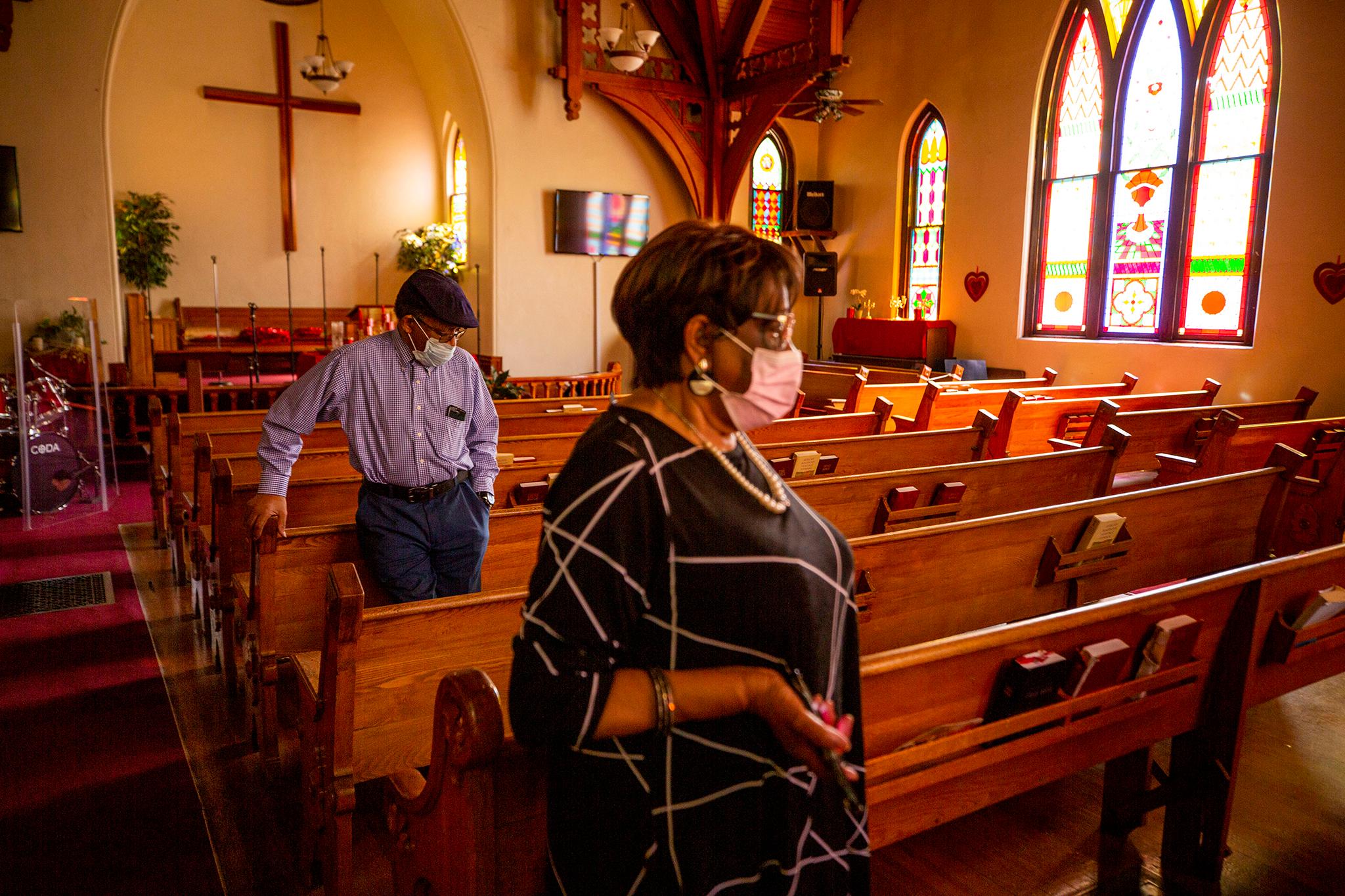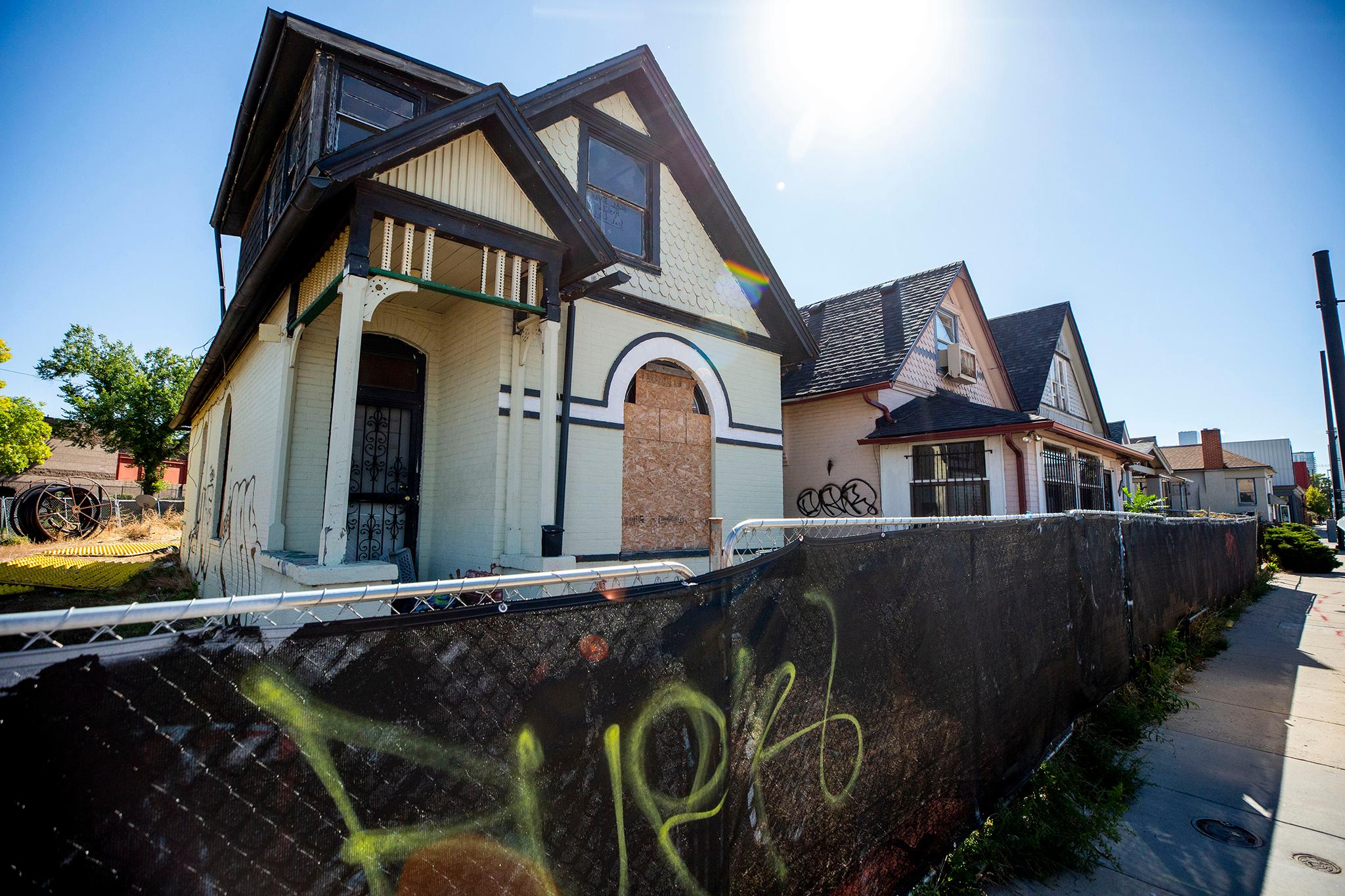If things go as planned, the three dollhouse properties along Welton Street will come down by next month.
But Oriana Sanchez and the property owners, Robert and Eddie Woolfolk, have faced if before.
Sanchez, project manager for BlueLine Development, which specializes in building affordable housing, has been working with the Woolfolks, who run Agape Christian Church, to complete a dream the couple has harbored since last year: Build affordable housing on land they own.
Their vision was derailed last summer by a common culprit in these things: parking.
The city's Board of Adjustment for Zoning rejected a variance to have fewer parking spots for their planned affordable housing complex. The plans for a 36-unit housing complex called -- by city rules at the time -- for at least 22 spaces. The Woolfolks wanted only six for the housing complex dubbed Charity's House Apartments, which will be located near the rail station at 27th and Welton Street.
Everyone went back to the drawing board. It initially led to a lease agreement announced in August 2020 to provide 17 off-site, off-street parking spaces. But fast forward a year, to this June, when the Denver City Council voted to tweak the city's zoning code. The decision changed the number of required parking spaces per unit for affordable housing projects like Charity's House. It made it so affordable projects could use a parking ratio of 0.1 spaces per dwelling unit, down from 0.25 spaces per unit.
The new rule also changed what areas could use the parking reduction ratio. Last year, the area where the three homes are located couldn't do that; this year, after the new rule was passed, it increased the areas where this ratio could apply, which meant that this project had access to the 0.1 parking space per housing unit rule (and why it was significantly less parking spots than were required last year).

So when the Woolfolks resubmitted a site plan for the proposal, it ended up approved by the city in July -- but with six parking spots instead of 22. The parking spots include five spots for residents and one spot as a loading space.
The housing units will be available for people making no more than 30 percent of the area median income, so up to $22,050 a year or less. It will provide housing for people who've experienced homelessness.
"I mean this is the most important thing is that 36 people who have been waiting for homes who've been living outside will now be able to, once construction is finished, will be able to come inside," Sanchez said.
The new if in the equation: While Sanchez said a good neighbor agreement was signed by the Woolfolks and sent to the Welton Corridor Registered Neighborhood Organization, it hasn't been returned yet with a signature. The document isn't legally binding, but Sanchez said not getting the sign-off from the RNO is frustrating since the parties involved spent about a year hammering out the agreement.
It's not clear why the agreement hasn't been signed by the RNO. Multiple calls and an email sent to Lynne Bruning, of the Welton Corridor Registered Neighborhood Organization, were not immediately returned on Wednesday or Thursday. Bruning has previously said she opposes the project, citing parking concerns.
City planning department spokesperson Laura Swartz in an email said Charity's House Apartments is the best example to date of a project that's directly benefited from the parking rule change.
Swartz noted a study released this year by the Denver-based company Shopworks Architecture. It found 50 percent of parking in affordable housing complexes goes unused, and the average vehicle ownership among people living in supportive housing like this hovers around 8.8 percent. A report released by RTD last year showed the average parking spot in metro Denver can cost about $25,000 each. These spots go largely unused at affordable housing developments.

"Reducing requirements for unnecessary and unused off-street parking spaces help keep housing costs down, which is essential for affordable housing providers," Swartz said over email. "This change had broad support from Denver City Council, local nonprofits, and residents when it was approved in June."
Sanchez said the sale of the three homes will close next month, at which point demolition on the site will start, following by construction, likely near the end of the month. The entire $13.7 million projects is tentatively scheduled to open February 2023.
Repeated attempts to contact the Woolfolks this week were unsuccessful.













